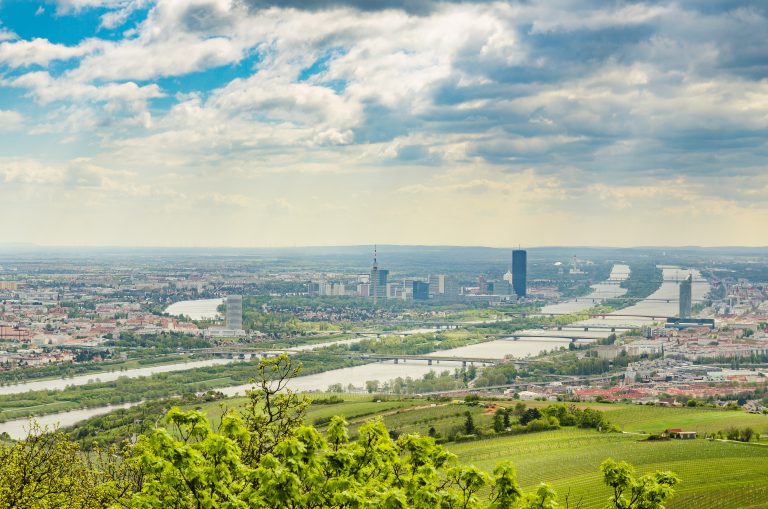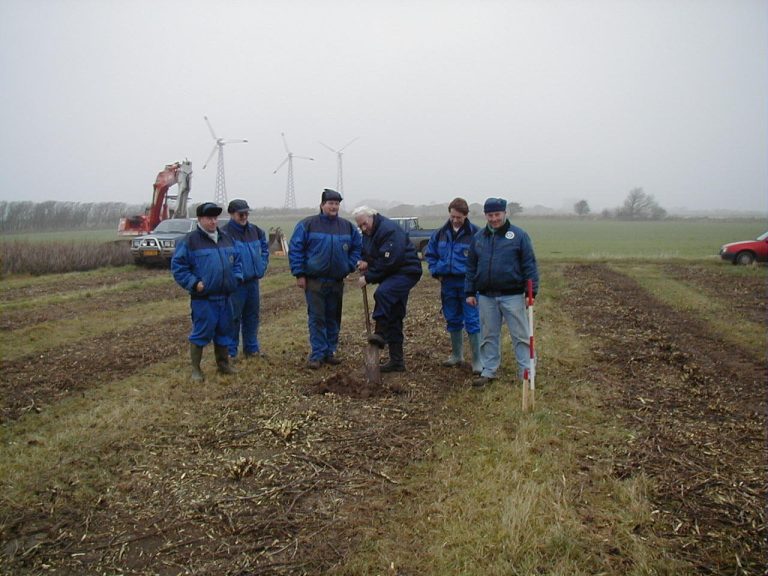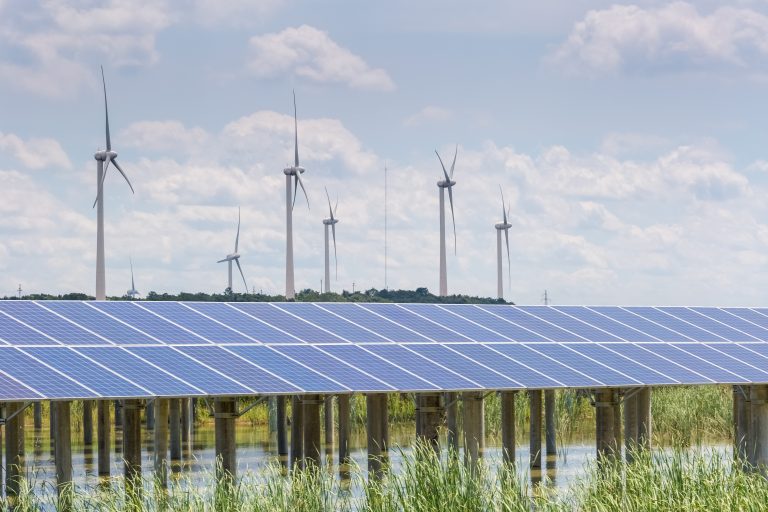
OurPower - en energy cooperative
Article written by Batuhan Akkaya
OurPower is an emerging energy cooperative in Austria operating a peer-to-peer marketplace for RES electricity generated by its members. Over the last five years, they have built a peer-to-peer marketplace for renewable energy, enabling every Austrian citizen to both buy and sell renewable energy. This initiative supports individuals to actively participate in the energy market.
The context
Wonderland is currently involved in two key projects, PED-ACT and POSEIDON, which focus on a holistic approach to the energy transition by integrating social and human-centered perspectives into the process. As part of this effort, we continue to interview stakeholders across the energy sector and capture their diverse insights and ideas.
Our purpose is not only to conduct research (albeit research is a part of what we do), but to also inspire action. We’d like to accomplish this by sharing the stories of unique initiatives – we believe good examples can provide citizens with fresh perspectives. One key observation we’ve made is that technical experts, businesses, and policymakers often operate within their own bubbles, with limited interaction between them and with the society at large. However, energy transitioning is a complex, multidimensional challenge that requires out-of-the-box thinking, cross-sector collaboration and participation.
Hemma Bieser is an individual bringing innovative perspectives to this dialogue. As co-founder and managing director of OurPower, she’s played a crucial role in building a peer-to-peer marketplace for renewable energy, enabling every Austrian citizen to both buy and sell renewable energy. This initiative supports individuals to actively participate in the energy market. We discussed both OurPower, as well as topics related to community and energy with her.
The road to creating a community
Hemma Bieser, an Austrian entrepreneur, physicist, and innovation strategist, has become an important voice in advancing sustainable energy solutions through digital transformation.
She explained to us how her interest in pioneering new ideas began early in life, sparked by the imaginative world of Star Trek: “I loved it when I was a child,” she recalls. “It was fascinating to imagine exploring new galaxies. I think that sparked something in me—a curiosity and desire to challenge the status quo.”
After contributing her expertise to the Austin Climate and Energy Fund, Hemma founded her own consulting agency in 2011, where she focused on developing new business models for the energy transition.
“We did a lot of creative and conceptual work, running workshops and exploring ideas. But over time, I felt unsatisfied—it was all concepts, and I wanted to turn these ideas into reality.” That turning point came in 2018, when Hemma and her collaborators launched OurPower, a citizen-led energy cooperative. Starting with 19 co-founders, OurPower has grown steadily and now has nearly 1,000 members.
Overcoming challenges
When asked about the challenges of leading OurPower, Hemma is candid. “We really faced a lot of challenges,” she admits. In the beginning, the cooperative planned to grow by engaging people directly—through workshops, events, and face-to-face meetings. But the COVID-19 pandemic quickly upended these plans. “Suddenly, we had the lockdown, and everything we had planned couldn’t happen,” Bieser explains. The team had to adapt, quickly transitioning to online events and workshops, but “it was difficult to reach people online. It’s just not the same as meeting in person.”
Another major challenge came with the energy crisis following the war in Ukraine, which led to price fluctuations and mounting pressure on the cooperative. “We were struggling,” Bieser confesses. “We had to find a stable and fair price—something in between the highs and lows of the market. That was really challenging.”
Despite these obstacles, some challenges turned into opportunities. Hemma highlights the strength of their team as one of their greatest assets. “We were really lucky,” she reflects. “We found the right people to grow OurPower, and that made all the difference.” Today, the team includes about 12 members—many of them young and eager to bring new perspectives,” says Hemma.
Making Complex Concepts Understandable
During Wonderland’s recent research about energy communities and positive energy districts, we found that many people struggle to understand these concepts, particularly in areas where such initiatives are less common. We asked Hemma how she made the idea of energy sharing accessible to everyday citizens.
“The concept of energy sharing and energy communities is written in two EU directives—the renewable energy directives. We put in effort to help shape Austrian law for energy communities, and around 2021-2022, a new law was passed that officially defines them. At OurPower, we run a peer-to-peer trading platform, which is a bit different from the legal definition of an energy community. However, we’ve played a role in advancing energy sharing through a marketplace model, which might have developed differently without this approach.” she explained.

Empowering Citizens in the Energy Market

We asked how the OurPower platform contributes to a fairer energy transition and democratizes energy access for individuals. Hemma was clear about her vision: “Democratizing the energy market means that citizens now have the chance to actively participate, to trade, and to shape the energy transition. Before OurPower, people couldn’t trade energy between neighbors and friends. Now they can.”
Hemma explained that “OurPower’s marketplace enables producers to set their own prices for energy. They decide how much they want to earn for their electricity. On the consumer side, they can choose from different producers based on their preferences. This creates transparency and choice for both producers and consumers. OurPower also promotes independence from big utilities and oil companies, creating new regional value chains rather than financing large corporations.”
Positive Energy Districts and Regional Energy Sharing
We also discussed the concept of Positive Energy Districts (PEDs). Hemma expressed that while these districts are generally designed at the urban scale, they often face limitations in terms of available space for energy production. However, she sees a way forward:
“Positive Energy Districts may struggle with physical space for renewable energy production—like rooftops or available land. However, what OurPower offers is the ability to connect regions and provide energy from outside the district, much like how you might buy organic products from regional farmers. In the case of OurPower, energy can be sourced from wind, solar, or hydropower plants located outside the district, creating a broader regional energy network.”
This shift from a district-based approach to a positive energy network model could redefine how we think about energy communities and transitioning. Hemma’s work demonstrates the importance of regional networks and the possibility for communities to engage in decentralized, democratized energy solutions.
Gender Equality in the Energy Sector
Finally, We brought up the topic of gender equality in the energy sector. Hemma has long been an advocate for diversity and inclusion within the energy transition. She acknowledged the challenges of a male-dominated sector but emphasized the importance of fostering a more inclusive environment: “We actively promote gender equality and strive to create opportunities for all voices to be heard, regardless of gender. It’s vital that women have an equal say in shaping the future of energy. In OurPower, we work to ensure that the cooperative environment is welcoming and inclusive, encouraging everyone to contribute their ideas and expertise.”
We want to thank Hemma for sharing her insights and experiences with us. Her work with OurPower is an example of how citizen empowerment and community-driven energy solutions can make a significant impact in the fight for a fair and sustainable energy transition. Hemma Bieser and OurPower are proving that through innovation, collaboration, and inclusivity, we can all be active participants in the future of energy.
For more information on OurPower, visit their website .
